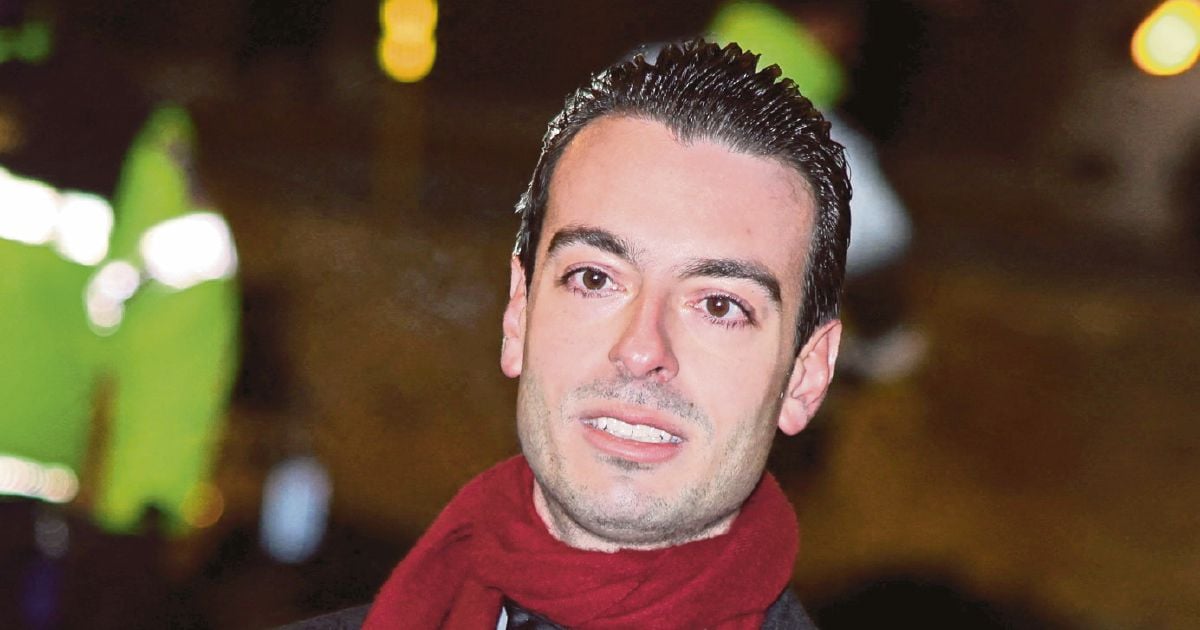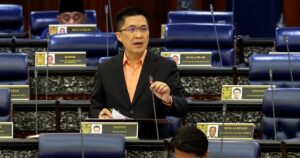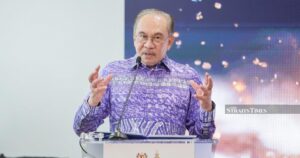THREE controversies involving leaked text messages from private online group chats have rocked United States political circles this month, revealing racist, anti-Semitic and violent statements from figures across the ideological spectrum.
The messages — sent privately but now public — include racial slurs, praise for Nazis and threats of political violence, raising questions about why those involved felt comfortable expressing these views despite the risk of exposure and censure.
Experts say the leaks of the text messages are noteworthy because they surfaced the unfiltered — and to many, shocking — views of political figures.
A Politico report on Oct 14 revealed that a group of about a dozen Young Republican leaders had been sending racist and anti-Semitic messages to each other on Telegram between January and mid-August, referring to black people as monkeys and with one declaring “I love Hitler”.
On Oct 3, leaked texts published by National Review revealed that Jay Jones, the Democratic candidate to be Virginia’s top law enforcement official, sent a private text in 2022 saying a state Republican should be shot dead and that he would urinate on the graves of political opponents.
And this week, President Donald Trump‘s nominee to lead a federal watchdog agency, Paul Ingrassia, withdrew from consideration after he lost support among key Republican lawmakers following reports that he had described himself as having a “Nazi streak” in a private text message exchange.
Experts in online culture and political discourse, including a professor from City University of New York and Alex Turvy, a sociologist who writes for publications including Social Media and Society, say the persistence of inflammatory group chats reflects a false sense of privacy and safety, despite the fact that the messages form a permanent record and can be leaked.
“It feels like it’s private speech. But you’re betting that all of the members in the group chat are going to protect you forever,” Turvy said.
The experts said an increasingly powerful social media presence among more extreme elements of both parties, and a phenomenon — especially among younger people — to push rhetorical boundaries, have exacerbated private hate speech.
Reece Peck, an associate professor of media culture at City University of New York, said Trump‘s own rhetoric on progressive causes has led many conservatives to believe that language that would have been deemed unacceptable is now permissible.
“They feel Trump has seized popular culture and the Democrats are out of touch. The throughline is anti-woke,” Peck said.
“If you can be edgy — say something inappropriate — you establish group membership. That dynamic is central to Trumpism.”
Turvy said this is known as “Edgelord culture”, an online phenomenon where people deliberately post shocking or taboo content to stay relevant in the chat group.
The text scandals brought widespread condemnation from across the political spectrum, although Vice-President J.D. Vance instead drew attention on X to the texts by Jones, the Virginia Democrat running to be the state’s attorney-general.
Jones in his 2022 text said former Virginia Republican House speaker Todd Gilbert should get “two bullets to the head”, and mused about his children dying in their mother’s arms.
Jones’ campaign referred Reuters to a statement he issued on Oct 3 in which he said he was “embarrassed, ashamed, and sorry” about his texts and had sought to apologise to Gilbert and his family.
Many of the Young Republicans involved in their group chat have since lost their jobs as political aides.
Across 2,900 pages of chats, black people were referred to as “the watermelon people”, one member talked about raping enemies, and there was talk of sending people to the gas chamber.
The writers are from Reuters
© New Straits Times Press (M) Bhd






